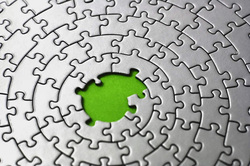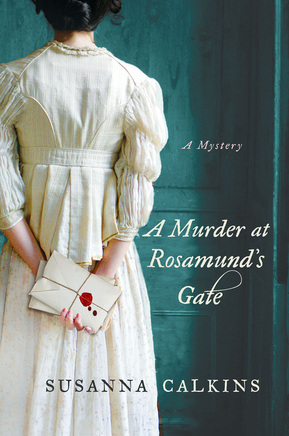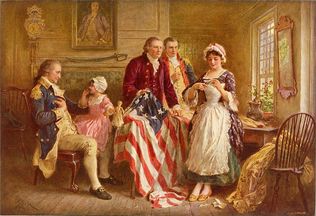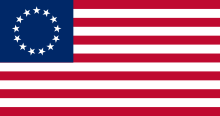 I don't know if it's summer, but everyone around me seems to be on a "get rid of stuff" kick. At work, at home, friends, neighbors, colleagues, you name it--everyone seems to be in this hyper-energized "let's clean up the world" frenzy. And I'm right there with them...sort of. I like clean. I like organized. I certainly like being able to find things. But I also like eclectic. And unusual. And unique. And historical. So I really struggle sometimes about which stuff is really worth keeping, and which stuff needs to go. After all, museums and archives are full of items that some character long ago opted to keep, when everyone else would have given it the old heave-ho. Believe it or not, the stuff that people leave behind is the stuff of history. Early telegrams, medieval codpieces, seventeenth-century murder tracts, Jersey Shore memorabilia, Geisha veils--all might have disappeared if someone, somewhere hadn't decided to preserve them for posterity. Just because something seems like junk, doesn't mean that future generations can't learn from them. Historians are trained to use anything they can to help glean new insights into the past. But it's not just objects, and it's not just about history....I really don't know what do with my written work. I don't even view myself as much of a pack rat, but I've always had that annoying feeling of 'Will I need it again?' Case in point: A few years ago, I finally got rid of all my grad school papers. Really, who does need that stuff? I mean, I have a transcript. I don't need to prove to my kids I once could write a five page paper in five hours. Plus, it's all on disk, right? Wrong! Unfortunately, I didn't have all that work on a disk. There was a great murder from nineteenth century France that I'd written about that I wanted to share on this blog (don't ask!)... But I can't remember the name of the trial, and so I can't find it again in the archives. I hate when that happens! Here's a few more items--Would you keep these? If you wouldn't keep them, what would you do with them? 1. The received correspondence of friends and family, including one verbose pen pal, for the last thirty years. 2. About one hundred journals that I've kept since I was 12. 3. Multiple printed, annotated, and handwritten drafts of A Murder at Rosamund's Gate, from first scribblings to final proofed copy edited version. (Do I need them? Do I? DO I?) 4. About five more started novels, in various degrees of completion. 5. Postcards from every trip I've ever taken. With the exceptions of 3 and 4, I sometimes think these items could be valuable for historians trying to document the social-cultural history of people (not me specifically!) living in turn-of-the-21st century America. In that case, I should wait for another fifty years to give it to a diary or personal correspondence project, right? Or is that just me rationalizing? So, before I do something with this stuff. You tell me...Did you ever give away something that you really regretted? Or have you already forgotten everything you've ever pitched?
15 Comments
 Do you prefer a puzzle at the outset... What kind of mystery do you prefer--the kind that presents a puzzle from the outset, or one that reveals the puzzle during the investigation? Let me know! Check out my post on this topic over at A Bloody Good Read!  I saw her somewhere around here... Years ago, I was taking the 44 bus home from school, just moving onto the Schuyllkill expressway, when we passed a sight that still unsettles me today. There, on our side of the river, a woman stood by a guardrail, tears streaming down her face, frantically throwing papers into the wind. She was flinging these papers--not triumphantly but in real anguish--so that they were wafting everywhere before disappearing into the waiting waters below. I remember the woman was well-dressed, maybe in a suit, and her straw-colored hair was slipping from a loose knot at the base of her neck. What I really remember, though, was her seeming oblivion to the row of faces staring at her as we rolled slowly by. I’ve thought about this woman many times over the years. What motivated this act? Fear? Revenge? Anger? Despair? Fear. Back then--my head clouded with Tom Clancy and John Grisham thrillers--I imagined the woman had become embroiled in a massive cover-up at the corporation where she was employed. Literally running for her life, this was a last-ditch to be rid of the files she'd stolen in a misguided whistle-blowing attempt. Revenge: Later, I thought maybe the woman had discovered she’d been on the wrong side of an affair. Casting her philandering husband's legal documents into the water, on the eve of a case that would make or break his career as an attorney--was her way of ruining him. Anger: When I was in grad school, I re-imagined her story again. She was an embittered doctoral student, and those scores of papers had to have been her failed dissertation. Dumping the manuscript in the water was a final ‘stick-it-to-you’ gesture to grad school committees everywhere. (I’m sorry to say—that actually happens). Despair: Now, of course, along the same lines as the angry grad student, I can see the woman as an author, and the stack of papers as the woman’s novel, rejected for the 37th time. So I, and my fellow bus passengers, witnessed what may have been one of most traumatic, possibly cathartic, moments of this unknown woman’s life. We knew nothing of her, other than that oddly intimate experience. I've wondered too, whatever happened to her after that? I suppose it depends on whether she’s the hero of her own story, or a minor character invented by me. If she’s the hero, I’d like to think she triumphed over adversity, and has long moved on past that terrible day on the bridge . If she’s a minor character in my life story, I’m rather afraid she didn’t make it. Right now, she’s just a plot point, a no-name character who's still hiding her story. One day, though, maybe she’ll make it into one of my novels. Then, I’ll know why she did it. What about you? What odd little glimpses into strangers' lives have you witnessed? Have you ever created back-story for these moments, in an effort to understand?  Some exciting news... A Murder at Rosamund's Gate is available for pre-order at Amazon and eventually where all books are sold. Mark your calendars...the book will be released April 16, 2013. All-knowing Amazon also informs me of the specs:
 Betsy Ross, 1777 (Ferris, ca 1920) Growing up in Philadelphia, I was both immersed in and oblivious to the colonial history that surrounded me. After school my friends and I often went to the mall by the Liberty Bell or we hung out in beautiful Independence Square, within a few yards of where the Declaration of Independence was signed, rarely heeding the significance of our historic surroundings. I admit, sometimes we'd laugh at the tourists snapping countless pictures, reading signs, peering at maps, buying outrageously expensive soft pretzels (everyone knew you don't buy them in the tourist areas!), pitching pennies on Ben Franklin's grave (years later, I understood why they did that--they were paying homage to the man who coined the phrase in his Poor Richard's Almanac, "A penny saved is a penny earned"--but at the time we thought it was a pretty silly thing to do.) Hey, we were kids. But I'm sure if someone had asked, we'd have been able to give a decent enough explanation of the events leading to the break with Great Britain, maybe something about John Hancock and Thomas Jefferson, etc. Heck, I'm sure we could have offered up the great tale of how Betsy Ross was asked by none other than George Washington himself to create the first American flag. And how that flag she sewed, with its unique star pattern, helped inspire a burgeoning nation to independence and unity. Or something along those lines. You don't mess with Betsy Ross. But as a historian now, I look back and question how history and legend became intertwined with our local popular memory and national identity. Only a little digging reveals that few vexillogists (people who collect and study flags, and also my new favorite word) and historians agree with the popular conviction that Philadelphia seamstress Elisabeth Griscom Ross (a.k.a. Betsy Ross, revered national icon) actually made that first flag (let alone that General Washington commissioned it). Indeed, the evidence appears to be scant one way or the other, and heavily anecdotal in nature. Much of the sentimental legend appears to have derived from a popular account put forth by Ross's daughter, and related in full by her grandson, in the late nineteenth century. Even then, however, scholars seemed a bit skeptical about the veracity of the legend, but the romantic quality seems to have captured the imagination of Ross's biographers, and the legend somehow became true. (Noted historian Laurel Ulrich offers an excellent discussion of how this transpired, and why Betsy Ross is still an important figure in U.S. history).  Another vexillogy related point (and yes, I am hoping to use that word repeatedly)--is the so-called "Betsy Ross five-pointed star pattern." Again, all kinds of myths abound about the origins of this type of star: some argue that the stars were connected to George Washington's family crest (doubtful, despite the red stars on the crest, given that this was the same man who would not be king); or perhaps to European heraldry (maybe some influences here), or most likely to the early naval signs. Say what you will--my money is on the alleged connection of the early founding fathers to the Masonic order (supposedly stars were one of their symbols, along with pyramids etc. The Da Vinci Code in America, anyone?) Even though legends about Betsy Ross and the flag are enjoyable, I think it's important to consider their origins. But what do you think? |
Susanna CalkinsHistorian. Mystery writer. Researcher. Teacher. Occasional blogger. Categories
All
Archives
May 2023
|

 RSS Feed
RSS Feed